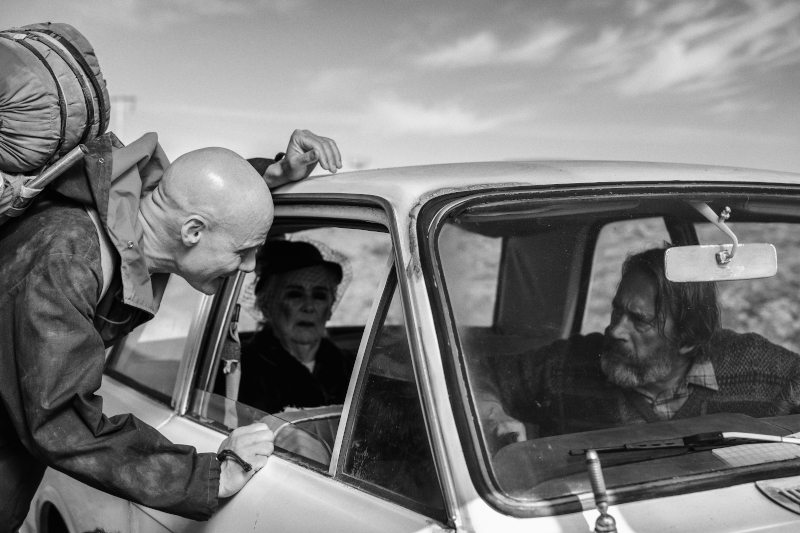Director – Hilda Oddsson – 2023 – Iceland, Estonia – Cert. 12a – 112m
****1/2
After his mum dies, a man must honour her last wish by driving her to her final resting place… On the way, she talks to him… – out in UK cinemas on Friday, March 1st
The 1980s. Jón (Þröstur Leó Gunnarsson) lives with his mother (Kristbjörg Kjeld) and his faithful dog Brezhnev in a remote part of rural Iceland. Days are spent sitting in the house knitting sweaters and listening to the radio – actually audio cassette recordings of the radio which run out in mid-sentence. These are periodically received in batches in boxes from a visiting trader in a boat in exchange for Jon and his mum’s home-knitted sweaters. Mum regrets never having been to Gullfoss, and Jon points out it’s unlikely to happen now. He is also a keen amateur photographer who operates his own darkroom. Rightly or wrongly, his mum worries about how he will survive after she’s gone.
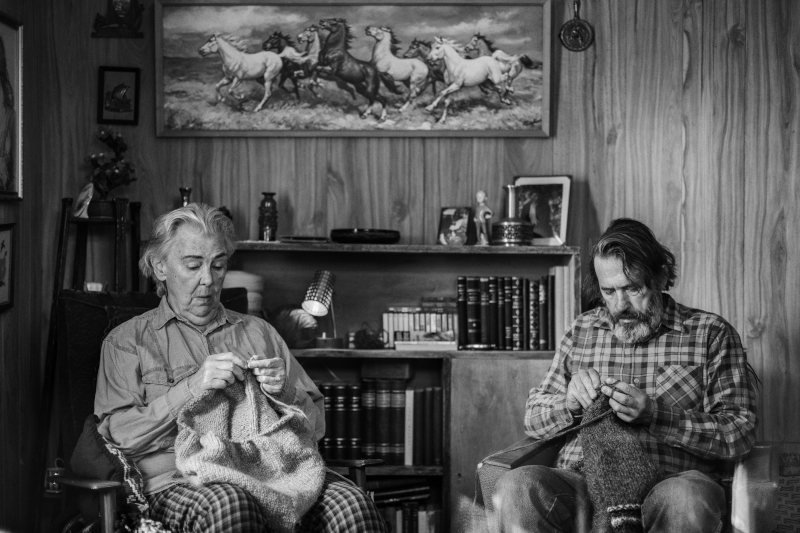
One morning, he wakes to discover she has died in her sleep. He makes her corpse up as best he can, which leaves much to be desired, since her resultant look is somewhere between a clown and a zombie. Undeterred, he resolves to honour her final wish and drive her to Gullfoss for her final resting place. He sits her corpse upright in the back seat of his modest car and he, she and the dog set out on the long journey cross-country. As they travel, she starts to talk to him and various home truths about her influence on his life emerge.
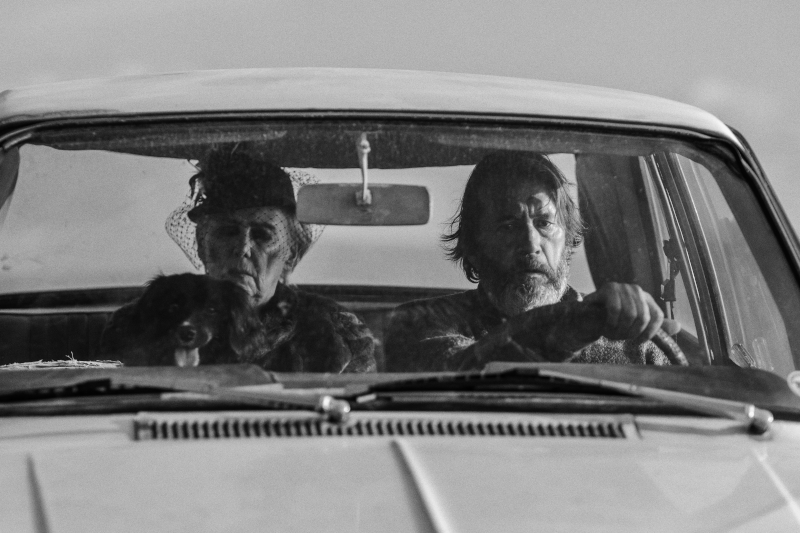
What follows is essentially an increasingly likeable road movie in which Jón meets a series of incidental yet memorable characters – German tourists coming the other way down a one lane road who refuse to back up to let him pass to whom his bigoted mother refers as Nazis, a hotel waitress who serves him lamb chops, one of two drunken women guests at the same hotel celebrating her friend’s birthday who takes him to her room for casual sex, a family whose dog runs under his car to whom he gives Brezhnev as a replacement, a French backpacker who helps him fix his car when it breaks down, a theatre troupe performing in the middle of a road.
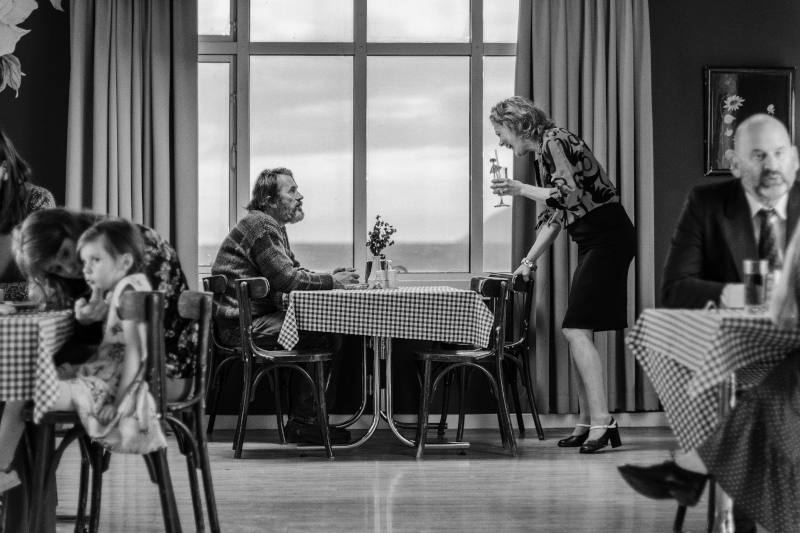
These encounters are handled with deadpan humour, which also infuses the relationship between the protagonist and his corpse mother. The mother son conversations are cleverly pitched so that you could interpret it either as, she’s dead but actually speaking to him, or she’s dead and he’s having conversations in which he imagines her talking back. It’s a tricky tightrope to walk, but Oddsson’s direction of her two perfectly judged leads somehow maintains the balance throughout, when in other hands it could have so easily have fallen into the embarrassing or the laughable.
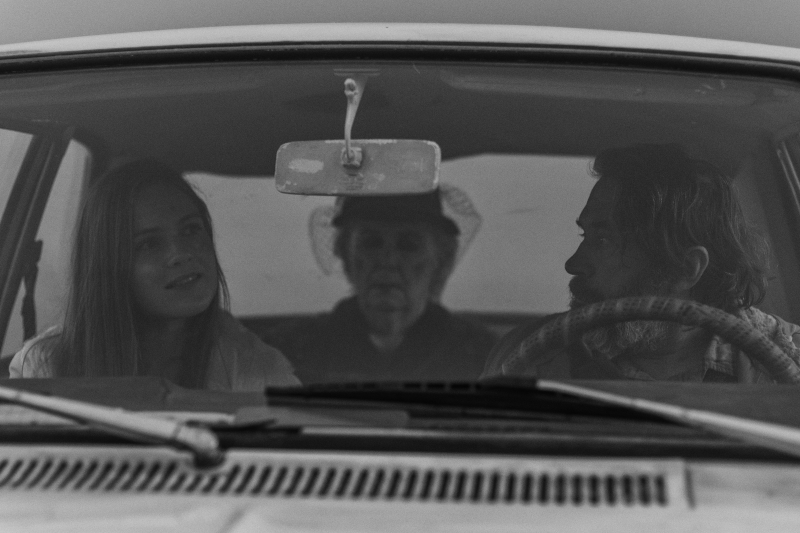
As the history of Jón’s love life and his mother’s meddling in it start to emerge through their conversations in the car, so too does his alternate agenda – he wants to visit the love of his life Bergdís who his mother thought would be wasting her time with him and who one day left him without warning. This may be partly because she was used to the city, while he wanted to live in the country. However, when he eventually tracks down Bergdís (Hera Hilmar) via her name and address, she isn’t the woman he thought she was.
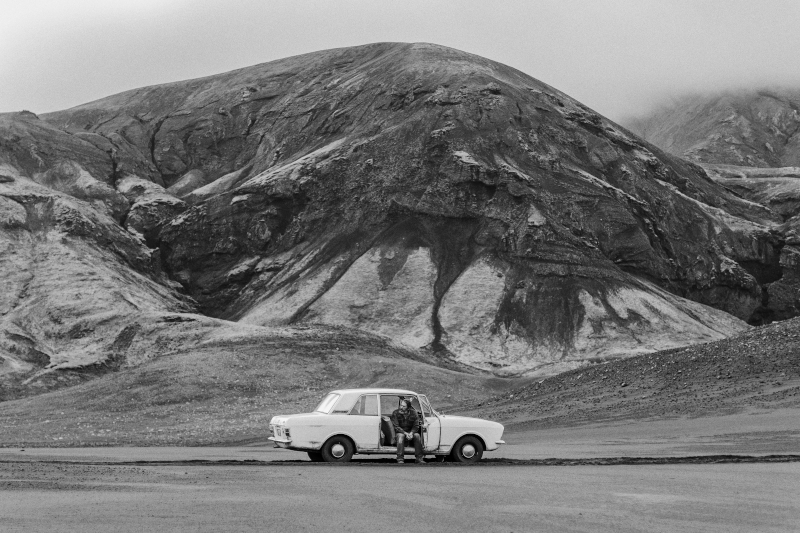
In addition to its poignant mother-son relationship and its off-kilter, at times laugh-out-loud funny, black humour – elements which in themselves make the film worth seeing – this boasts a couple of truly impressive, additional assets. One, it contains some of the most stunning black and white photography / cinematography I’ve ever seen… Well, it’s not really black and white so much as a huge variety of greys and white in which cinematographer Óttar Guðnason captures the car interiors, the encountered characters and the bleak Icelandic landscape. Two, it has a really striking score by composer Tõnu Kõrvits.
The film takes a little while to get going, but picks up as it slowly it settles into its own distinctive rhythms, and by the end had completely won me over.
Driving Mum is out in cinemas in the UK on Friday, March 1st.
Trailer:
